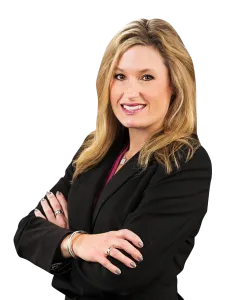The Risks Are Real: What We Know and Can Predict About CARES Act Financial Fraud Enforcement

While gearing up to get trillions of dollars into the economy, the government was also setting in place the mechanism to investigate and prosecute fraud related to these programs.
What to Know
- The CARES Act was signed into law on March 27, 2020 to inject over $2 trillion into the economy and help American workers and businesses survive the economic impact of the COVID-19 pandemic.
- In only three months, the US government has initiated the first wave of aggressive criminal and civil investigations and actions to pursue allegations of fraud in connection with the procurement and use of this federal aid. And there can be no doubt that this enforcement activity will continue with vigor. Borrowers and businesses should be prepared for potential audits, investigations, and legal action if they such applied for or accepted government funds.
- There is a dangerous misconception that potential CARES Act fraud under $2 million is not being pursued. The Department of Justice (DOJ) has already started prosecutions for alleged fraudulent schemes far less than that figure.[1]
Government Oversight
To oversee the disbursement of funds and to curb fraud and misuse, the CARES Act created various oversight bodies that will function for at least the next five years. Beyond the CARES Act, multiple government agencies, including the FDA, FTC, and SEC have been working to detect and prevent all forms of COVID-19 related fraud. DOJ has been investigating and filing criminal charges for alleged PPP fraud, consistent with United States Attorney General William Barr mandate to prioritize such prosecutions, which we previously reported on here.
Recent Federal Enforcement Activity
The bulk of the federal enforcement actions to date involve DOJ’s pursuit of alleged bank fraud, wire fraud, and false statements charges related to COVID-19 federally funded loans. In fact, DOJ began filing criminal complaints and indictments related to PPP and other federally funded COVID-19 aid since March coinciding with several states issuing shelter in place orders. Investigators from government agencies, with the cooperation of financial institutions, are meticulously reviewing loan applications and related submissions for any suspected fraudulent conduct. Some of the more glaring examples include:
- A former movie executive charged with fraud in California for allegedly making false statements on loan applications requesting over $1.7 million and using the money for unapproved expenses such as paying his and his wife’s personal credit cards.
- In Massachusetts, a man was charged with fraud for allegedly submitting falsified payroll and tax documents with at least four applications requesting over $13 million; the investigation was a collaborative effort between multiple agencies.
- In New York, a Chinese national who applied for over $20 million along with allegedly forged records and false claims that he had hundreds of employees when he may be the only one.
But the headline-grabbing cases should not lull recipients of smaller loan amounts into a false sense of security. Multiple criminal charges have been brought over fraudulent schemes tied to amounts less than a million dollars. Just a few of many examples include:
- A Michigan man was criminally charged for obtaining a $590,000 PPP loan on behalf of a purportedly defunct business and using the money for unapproved expenses.
- In Virginia, a man was indicted for making false statements about his criminal history in his PPP and EIDL loan applications and fraudulently obtaining over $190,000.
- In New Jersey, two men were charged with allegedly filing loan applications fraudulently seeking more than $500,000 in forgivable loans.
Significantly, the Small Business Administration (SBA)’s “safe harbor” allowing borrowers to repay PPP loans they did not need (based on the certification requirement) is not a blanket exemption from applicable laws, such as criminal statutes that penalize false statements. Several defendants tried unsuccessfully to withdraw their applications or return the funds once they became aware of investigations into their activities.
Recent State Enforcement Activity
Not to be outdone by the federal government, several states are also ramping up their COVID-19 related enforcement activities, especially against alleged price-gouging during the pandemic. For example:
- In California, officials arrested eight residents on suspicion of price-gouging after an undercover operation collected evidence they were charging exorbitant prices for toilet paper and hand sanitizer.
- On May 13, 2020, the New York Department of Consumer and Worker Protection announced it had received more than 9,700 complaints, issued more than 6,200 violations, and filed seven lawsuits related to price-gouging.
Still to Come: FCA and FIRREA Enforcement
Going forward, we also expect the government to bring additional claims related to financial fraud under the False Claims Act (FCA) and the Financial Institutions Reform, Recovery and Enforcement Act of 1989 (FIRREA).
Any entity that receives government funds can face FCA claims if those funds are misused and/or government requirements and conditions are not followed. The FCA allows the government to recover treble damages, and it also has a “whistleblower” provision that permits private plaintiffs to sue in the name of the United States. Plaintiffs who are successful are entitled to up to 30% of any recovery. Whistleblower provisions have created an active plaintiff’s bar that incentivizes people, especially employees (and disgruntled former employees), to file suit.
The DOJ is also likely to utilize the civil money penalty provision of FIRREA to investigate and prosecute persons suspected of defrauding government aid programs. FIRREA imposes liability for a series of predicate offenses including bank fraud, false statements, and mail or wire fraud affecting a financial institution. FIRREA can be a preferable enforcement mechanism for the government because of the more lenient burden of proof than in a criminal prosecution. FIRREA also allows for whistleblower suits.
Best Practices for What Comes Next
History tells us that with the acceptance of government funds comes a heightened level of scrutiny. We have seen over a decade of enforcement related to the 2008 Troubled Asset Relief Program (TARP), which provided $700 billion – approximately one-third the size of the CARES Act – to stabilize the economy. Given that the CARES Act dwarfs TARP in both size and scope, we expect the resulting enforcement activity now to exponentially outpace that of TARP.
Businesses should be aware that loans in any amount may be audited by SBA, and DOJ can investigate companies’ loan applications and/or their use of funds to prosecute fraud with or without a referral from SBA.
We recommend companies that applied for government aid related to the pandemic implement the following best practices immediately:
- If participating in a COVID-19 loan or grant program, ensure that eligibility requirements are met and representations to the government are accurate, truthful, and well-documented.
- Have a functioning compliance program in place that is scaled to the needs of the business and updated at least annually to reflect changes in the business or legal landscape. A robust compliance program will not only help detect and prevent fraud but may also help minimize potential liability under the FCA or FIRREA or mitigate criminal enforcement if fraud is later discovered.
- Have a whistleblower program in place to enable employees to anonymously report suspicious activity related to the use of loan funds. All complaints need to be investigated and documented thoroughly.
- Stay informed about regulations, conditions, and any developments which may change as the pandemic and response to it evolves.

